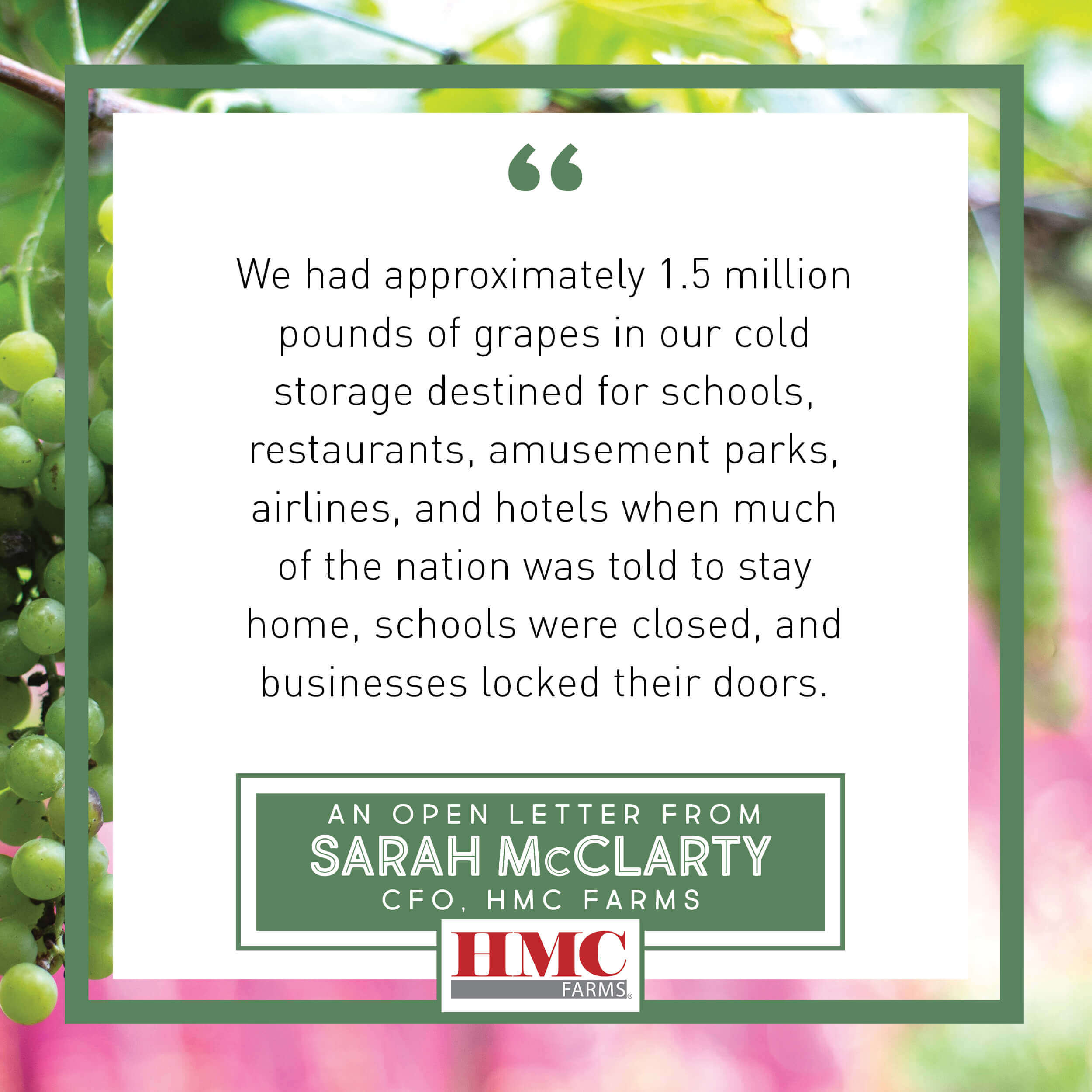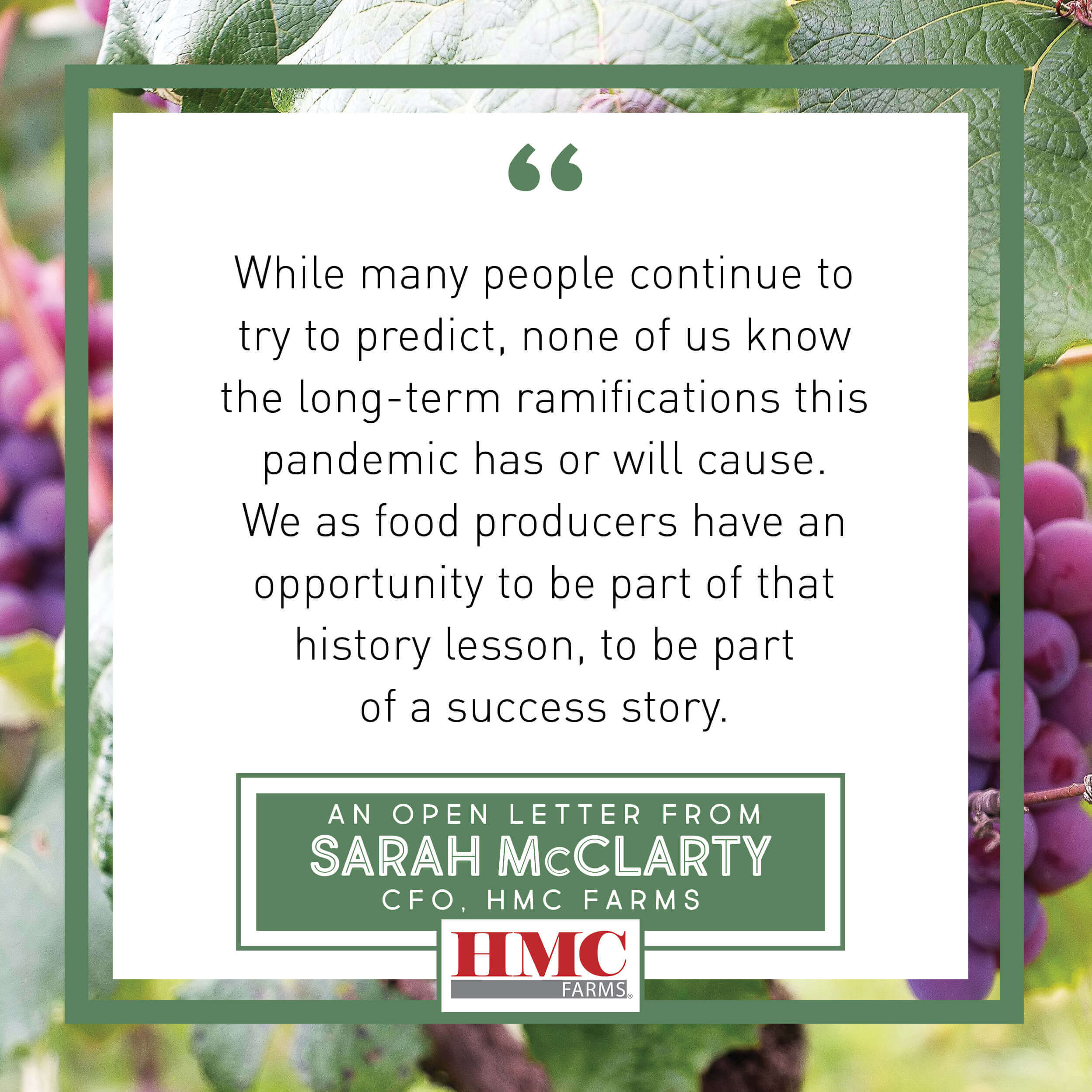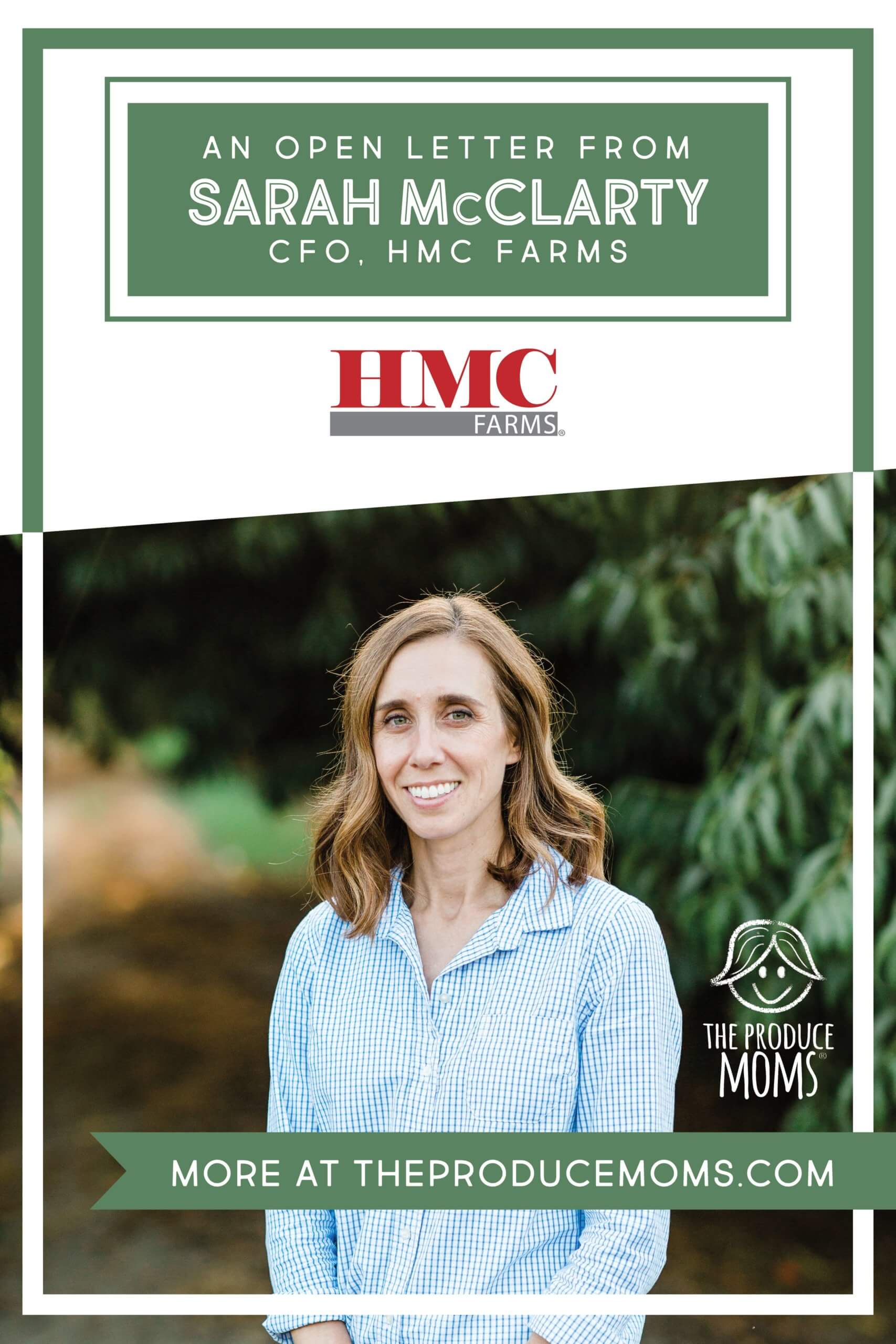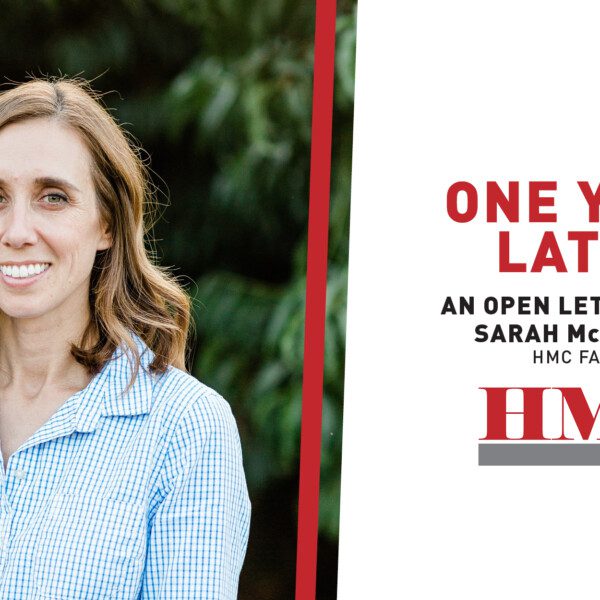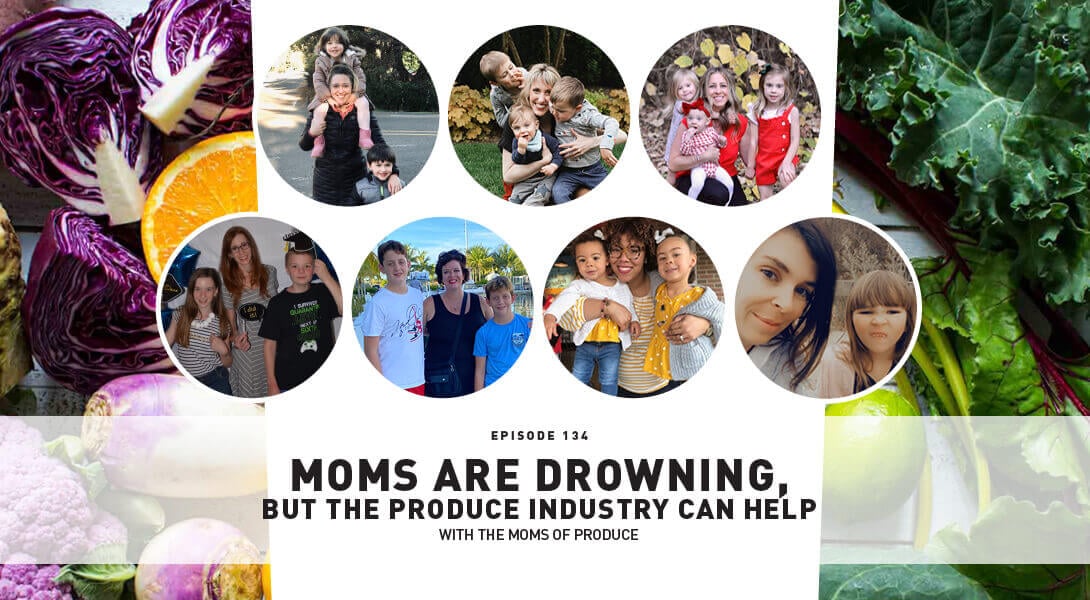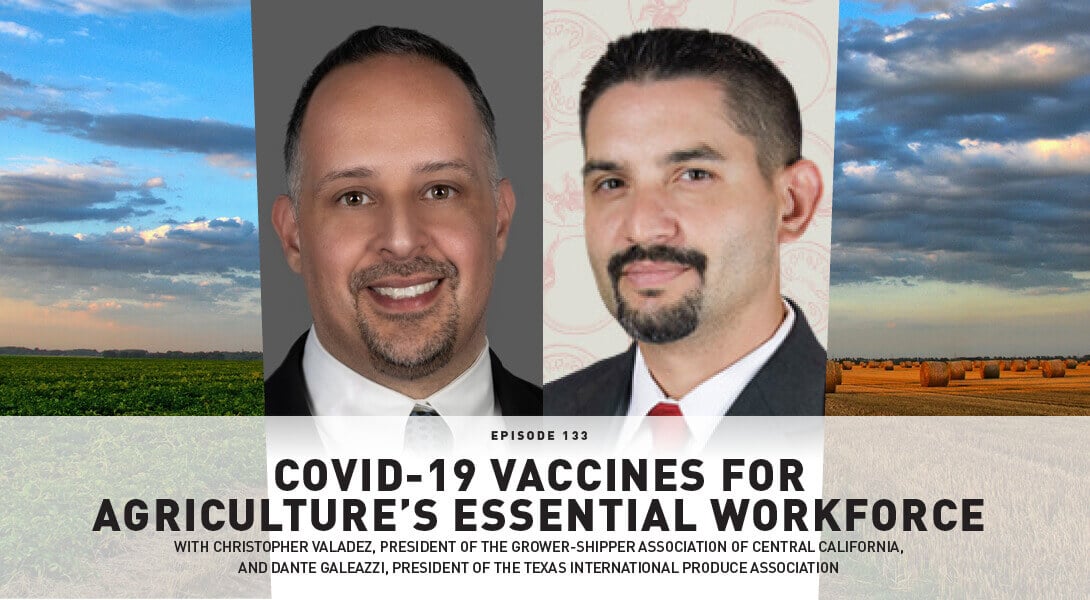An Open Letter from Sarah McClarty, HMC Farms
Apr 17, 2020, Updated May 21, 2021
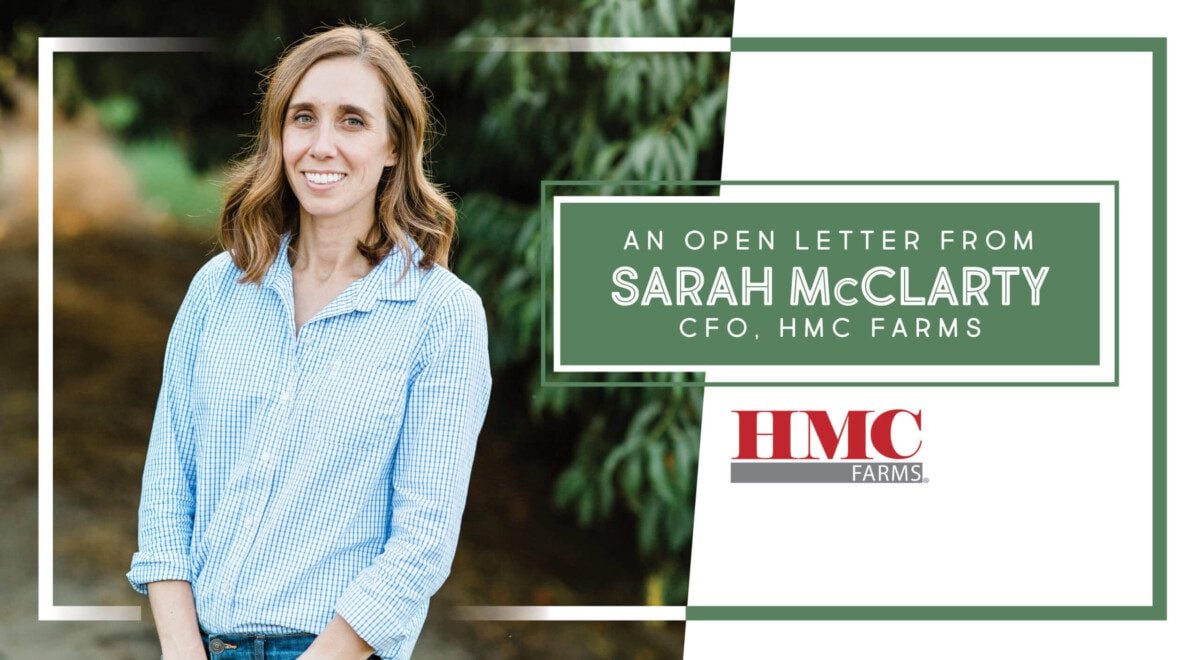
This post may contain affiliate links. Please read our disclosure policy.
The Produce Moms Covid-19 content series provides our community of consumer followers with perspectives and real-life stories from the agriculture supply chain. Today’s guest blog is authored by Sarah McClarty, Chief Financial Officer and Co-Owner of HMC Farms.
Rooting back to 1887, HMC Farms is a multi-generation family farm located in California’s Central Valley. HMC Farms is a leading grower in table grapes and tree fruit including peaches, plums, nectarines and plumcots.
HMC Farms is a leader in bringing fresh produce to schools. You can learn more about their commitment to schools at grapesforschools.com. And you can learn more about the family farm at HMCFarms.com.
HMC Farms and The Produce Moms have been brand partners for nearly 3 years. We are so passionate about what they do and the delicious fruit that they grow. Enjoy this open letter from a member of the McClarty family, Sarah – mother of two, co-owner of the farm and CFO.
An Open Letter from HMC Farms Co-Owner and Chief Financial Officer, Sarah McClarty
April 14, 2020
I’m writing this blog at 5:00 am trying to get a few hours of work done in peace before I get to perform the exhausting dance of helping keep our company afloat, our employees safe, and the nation’s food supply secure while homeschooling our two children. I’ve been doing this for almost a month now. I’m tired, I’m scared, and I’m one of the lucky ones.
We had approximately 1.5 million pounds of grapes in our cold storage destined for schools, restaurants, amusement parks, airlines, and hotels when much of the nation was told to stay home, schools were closed, and businesses locked their doors. These grapes weren’t in bags you can find in the grocery store, they were prepped for food service channels – bulk grapes, pre-cut into perfect handful size bunches and grapes already taken off the stem, washed, and ready to eat. Overnight, a lot of our food service customers stopped ordering and sent us letters stating they have no idea when they’ll be able to pay us again. No money coming in and a mountain of perishable inventory is not a business model anyone would recommend, but as my father-in-law Harold put it – we are considered an essential business, and we had the chance to keep operating. It was time to get creative.
We started repacking our grapes into retail ready bags, worked with school districts to get them the product they needed in packaging that worked for their new meal pick-up formats, and pushed inventory into home delivery services that have seen an uptick in their businesses. We have a longstanding relationship with our local food bank, and have donated millions of pounds of summer stone fruit to them over the years. We knew there was no way we would sell all of our inventory, and we also knew there was a large population in our community that would need assistance during this time. Before the grapes deteriorated, we started sending the California Association of Food Banks several truckloads of fruit each week. Last week, our local food bank reached out to their longtime donors asking if there was anything more we could do – they had a 50% jump in need in the prior two weeks, and almost a quarter of the people receiving food and supplies were first time visitors to the food bank. Only a few months prior, HMC had hosted a volunteer night at the food bank packing up hundreds of boxes for their weekly distributions. With tears in my eyes, wondering what those families are going through now I wrote a large check on behalf of the McClarty Family.
In the forefront of our planning during this entire time has been the safety of our employees. Their health is not only required for us to keep operating, but they are part of our family and we would never want to compromise their safety. Across our operations, we have always maintained high sanitary standards as is required of food growers, handlers, and processors; but we have redoubled our efforts and taken further steps to allow for social distancing. As mitigation steps, we have broken our crews into small pods, we don’t move employees between pods, breaks and lunchtimes are staggered by pods, and in our packing facility the different pods wear different color labels to help promote separation. We sponsor a free clinic for our employees that has remained open and servicing clients during this time. Though we’ve had to lay off people in our processing plant due to the drastic downturn in business, we continue to allow them to access the clinic and receive both acute and maintenance care during this health crisis.
We are now looking forward. We have millions of dollars invested in the crops out in our fields right now. Our sales staff is doing their best to meet our customers’ ever-changing needs including adjustments to packaging that there are now even longer production lead times on. Supplies in general are hard to come by and must be ordered weeks in advance. We have started the labor-intensive practice of thinning our stone fruit, and must still pay for continued cultural practices, harvest, packing, storage, and shipment of our product before it gets to an end user. All of this means paying out money now, when we are facing the uphill battle of collecting receivables from longtime customers that are facing unprecedented financial challenges of their own.
As my son’s 2ndgrade teacher told her students during one of their Zoom instructional meetings last week, we are living through a significant historical moment right now. While many people continue to try to predict, none of us know the long-term ramifications this pandemic has or will cause. We as food producers have an opportunity to be part of that history lesson, to be part of a success story.
To keep our food supply flowing, we need to see flexibility in trucking rules, we need the USDA to step in and use the existing PACA Act to help keep money flowing back to producers, we need to see relaxation in regulations that are now at odds with new COVID-19 requirements, we must keep farmers and ranchers growing and producing food. Decisions being made now will impact our nation’s food supply for years. HMC is committed to helping support these changes, our employees, and our community. This is a time for everyone to get creative and to help each other out. We will keep evolving to do our best under ever-changing circumstances.
Sarah McClarty
Chief Financial Officer, HMC Farms
Click here to visit HMC Farms’ blog to read this Open Letter from Sarah McCarty.
[bctt tweet=”We want to share an open letter from our brand partners at @HMCFarms to help our followers gain perspective from the agriculture supply chain during the Covid-19 pandemic.” username=”theproducemom”]
The Produce Moms’ Covid-19 Content Series:
- Understanding Farmworkers and H-2A in the United States
- How to Wash Your Produce with Dr. Max Teplitski
- The Benefits of Fruits and Vegetables on Mental & Physical Health
- The State of Foodservice Amidst COVID-19
- Covid-19 and Produce Safety
